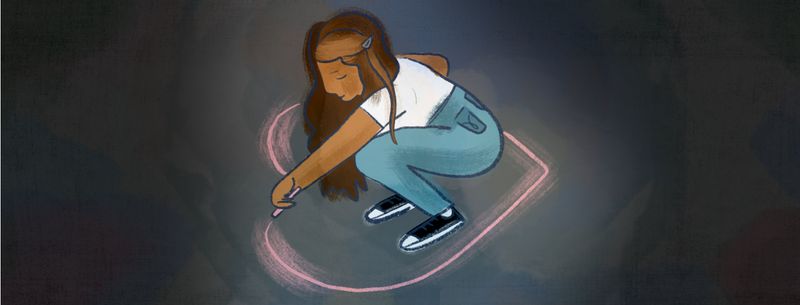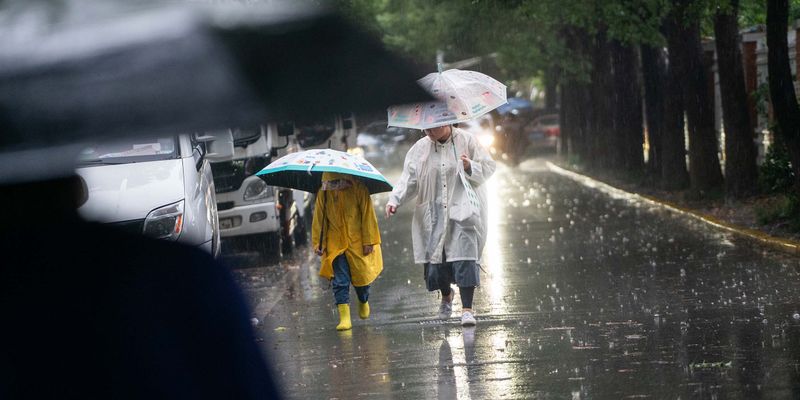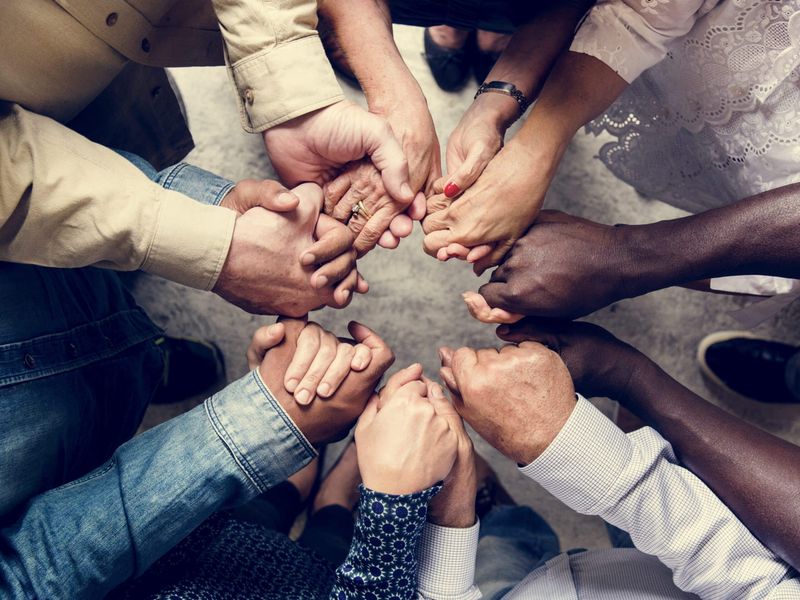I’ll be straight with you. Life gets messy. Some mornings, it takes everything just to pull on jeans and face what’s waiting outside the door.
Ever notice there are people who seem to wade through that chaos with a smile that isn’t fake? They aren’t superheroes. They aren’t out of touch. They just have a set of habits, quirks, and ways of seeing the world that let them carry the hard stuff a little lighter.
If you’ve ever wondered what’s really behind their calm, here’s the real, honest list—no silver linings, just the unpolished truth about 18 traits you’ll find in people who take it all in stride.
1. Dark Humor as a Life Raft
When my roommate got dumped, she texted, “Guess who’s single and eating cereal for dinner?” I laughed because that’s how she coped. It wasn’t about pretending it didn’t hurt. She made fun of the ache until it shrank enough to carry.
People who get through hard times usually crack jokes at the worst possible moment. Sarcasm about job interviews gone wrong, or one-liners at funerals. It’s not cold—it’s survival. Humor scrapes a little space around the pain, lets them breathe while everyone else holds it in.
You know that friend that makes the whole group laugh while their life unraveles. It doesn’t fix anything, but it keeps you all afloat. That’s what dark humor does: it turns disaster into something you can live with, at least for one more night.
2. Radical Acceptance
They didn’t fight reality – they just stared it down until it blinked first. That’s radical acceptance: looking at what’s true right now, no matter how ugly, and refusing to argue with it.
People with this trait don’t waste time asking, "Porquê eu?" They know the universe won’t answer. Instead, they ask, “What’s the next step?” They move forward, even if the ground feels shaky beneath their feet.
It isn’t giving up. It’s saying, “This is the hand I was dealt; I’ll play it anyway.” Sometimes, that’s the bravest thing you can do.
3. Bouncing Back, Not Breaking
Ever watch someone get knocked off their feet, only to see them get up, brush off the mud, and keep going? That’s resilience, and it’s never as graceful as quotes make it sound.
I knew a girl who lost her apartment, her job, and her boyfriend—all in two months. She still found the heart to help her neighbor move, to show up for coffee, to laugh at bad TV. Resilience isn’t about never falling; it’s refusing to let the fall be the last word.
She taught me that falling apart sometimes is just part of the bounce. What matters is that you stand up again, even with dirty knees and mascara running down your face.
4. Flexible Plans, Strong Will
They always book two backup plans—one for if things went right, one for if they didn’t. People who handle anything don’t glue themselves to their idea of how things should go. They keep their plans loose and their willpower solid.
If the road closes, they find a different route. If their date cancels, they text a friend and make it a girls’ night. Flexibility isn’t about not caring; it’s about not crumbling when the world shifts.
They still care, deeply. They just know that a good plan is one you can rewrite when life scribbles all over it.
5. Turning Mundane Into Play
There’s that one friend who makes folding laundry look like a party. Or turns grocery shopping into an adventure, singing along to the store’s awful playlist. It’s not because chores are fun—it’s because they make them fun.
People who take things in stride look for the spark in boring days. They know life’s not always exciting, but they don’t let that dull their shine.
You can find joy in microwaving leftovers or waiting in line, if you let yourself be a little silly. That’s not childish—it’s survival with style.
6. Selective Memory for Grudges
I watched people like these listen while someone apologized for the fiftieth time. They nodded, forgave, and let it go—not because it was nothing, but because grudges are heavy and they loved feeling light.
Some people remember every slight. Others choose to remember what’s worth keeping. These people keep the lessons and ditch the poison.
It’s not about being a doormat. They can stand their ground when it matters. But they won’t drag old resentment around like a suitcase with a broken wheel. That’s wisdom, not weakness.
7. Asking For Help Without Shame
My friend once said, “I’m drowning here—can you just sit with me?” No apology, no pretending she had it all together. That’s a rare kind of bravery.
Some people act like asking for help is defeat. But the ones who manage the stormiest days know reaching out isn’t weakness—it’s resourcefulness. They lean into their circle and let others carry part of the load.
It takes trust. It takes self-respect. And it always brings people closer, even when life is falling apart.
8. Mastering the Art of the Shrug
Ever seen someone get cut off in traffic, then just let it go? That’s a superpower: the art of not sweating the small stuff.
People like this don’t fake indifference. They just know what’s worth their emotional energy and what isn’t. A shrug here, a deep breath there—saves you from unnecessary drama.
Sometimes, you don’t need a solution. You just need to not let the nonsense stick.
9. Curiosity Over Cynicism
Some people greet the unknown with suspicion. They greet it with questions.
Curiosity keeps their world big, even when life tries to make it small. Instead of bracing for disappointment, they lean in, wanting to know more. That’s how they turn setbacks into stories, not scars.
They believe there’s something worth finding in every conversation, every weird twist of fate. That’s what keeps things interesting.
10. Emotional Self-Awareness
A girl I knew didn’t just feel her feelings—she named them, tracked them, and called them out. When she was angry, she said it. When she was scared, she owned it.
People who handle everything know what’s going on inside them. They don’t bottle it up; they get curious about it. That’s how they keep from exploding over spilled milk or lost keys.
I learned that naming what you feel doesn’t make you weak—just real. That’s the foundation for everything else.
11. Unexpected Gratitude Rituals
This kind of people writes thank-you notes to their past self. On bad days, they list three ridiculous things they are still grateful for—like socks with no holes or that one neighbor who returns lost mail.
Gratitude isn’t just a feeling for them. It’s a practice, a ritual, a stubborn act of hope. They find something to appreciate, even when the day’s a dumpster fire.
That stubborn insistence on noticing good things? It’s contagious. It doesn’t erase the bad, but it gives you a place to stand while you deal with it.
12. Adaptable Boundaries, Not Brick Walls
I heard this saying once, “A boundary is a door, not a wall.” These people say no when they have to, but they also let people in when it matters. Boundaries for them aren’t about shutting life out—they are about making sure they don’t get steamrolled.
They bend when it makes sense, stand firm when it doesn’t. The key was that they pick their battles. It’s what lets them stay open, without becoming a doormat.
Not everyone gets this right. But when it’s people who take it all in stride, they walk away lighter, not bitter.
13. Seeing the Bigger, Messier Picture
When the day fell apart, they looked at the whole week, the month, the year. They didn’t zoom in on the one thing that broke them; they zoomed out, saw where it all fit. That’s how they survived the worst news without crumbling.
Big-picture thinkers know that one bad day doesn’t define a life. They see patterns, not just puddles. It lets them hold sadness and hope at the same time.
They say, “It’s a chapter, not the whole book.” And somehow, that helps them to keep turning the page.
14. Letting Awkwardness Be Funny
My coworker tripped in front of our boss once, and instead of dying inside, she laughed about it right there. Her cheeks went red, but she made a joke, and suddenly everyone relaxed.
People who don’t take themselves too seriously turn awkward moments into inside jokes. They let themselves be human in public. It’s a relief—no one has to pretend.
She once told me, “If you’re not embarrassed sometimes, you’re not living hard enough.” I believed her.
15. Minimal Catastrophizing
Let me putt it like this: When their umbrella snaps in a downpour, they just shrug, fix it, and go on. No meltdown, no dramatic sighing. These people don’t imagine the whole day ruined by one bad moment.
They don’t let their brains spiral into disaster mode. They notice their thoughts, call them out, and pull themselves back from the ledge. It’s not denial—it’s steering.
Not every small storm means the sky is falling. Sometimes, it’s just weather. You’ll dry off soon enough.
16. Mindfulness in Chaos
Did you ever noticed one person sitting still in the middle of the chaos? Even on days when everyone rushes, they close their eyes, take three breaths, and tune out the noise.
Mindfulness isn’t incense or chanting. It is a moment of paying attention, a way to pause the world long enough to reset. A tiny act of rebellion against the pressure to go faster.
It’s called “finding the silent spot.” I started looking for mine, too, and found it mattered more than I thought.
17. Rooting for Others, No Scorekeeping
I have a friend who cheers the loudest, even when she isn’t the one winning. She roots for her friends without keeping score, never asking, “But when is it my turn?”
People like her don’t see someone else’s success as their loss. They carry enough self-worth to know there’s enough joy to go around. It’s not fake positivity; it’s real faith in abundance.
When I felt jealous, she reminded me, “We all get our moment.” She is right.
18. Able to Start Over (Again and Again)
Imagine this: you move cities three times in five years. Each time, you start from scratch—new friends, new job, new grocery store. It isn’t easy, but you keep your hope alive by believing you could build something better, even if it means leaving good things behind.
People who take life in stride trust their own ability to begin again. They grieve, they let go, and then they get to work. There’s a strange freedom in knowing you’ve survived it all before.
Starting over is scary, but staying stuck is worse. Remember that every time you pack a box.



















